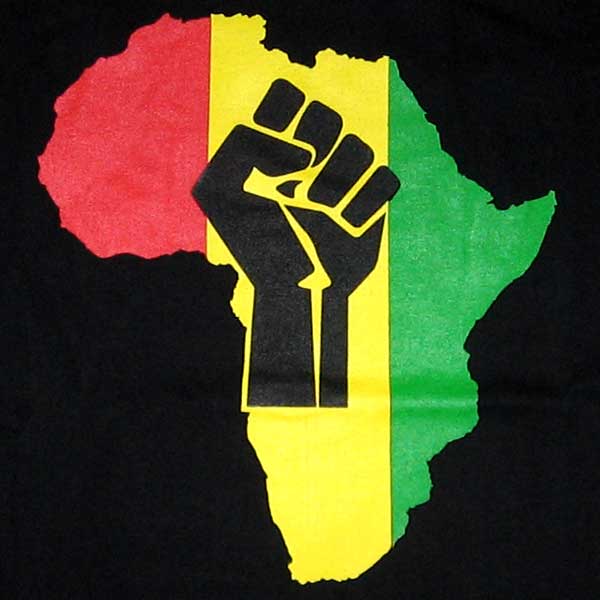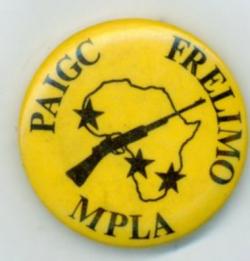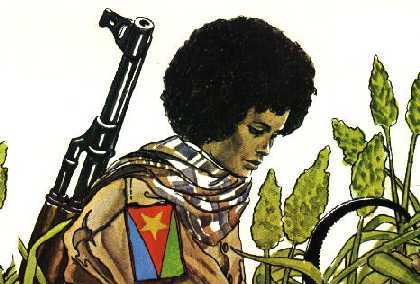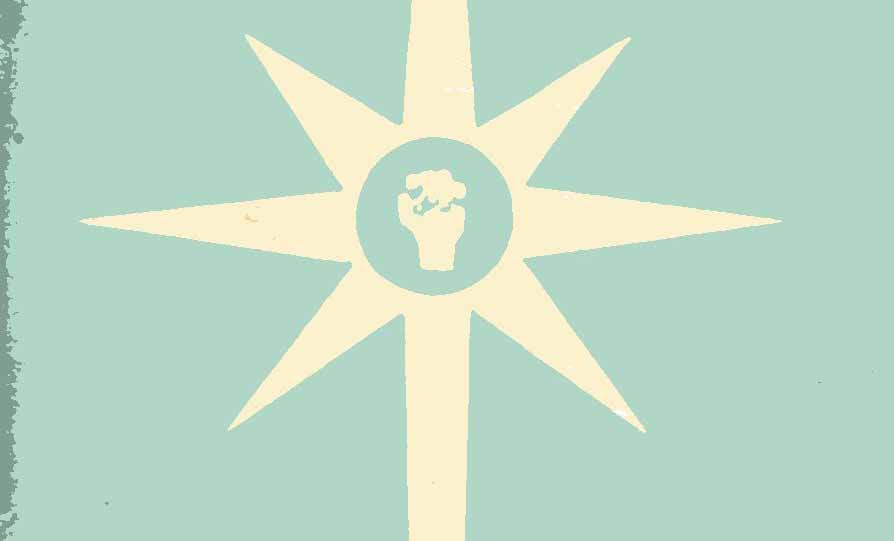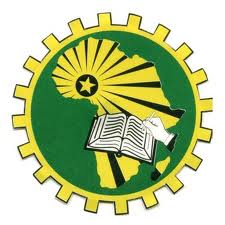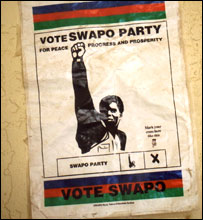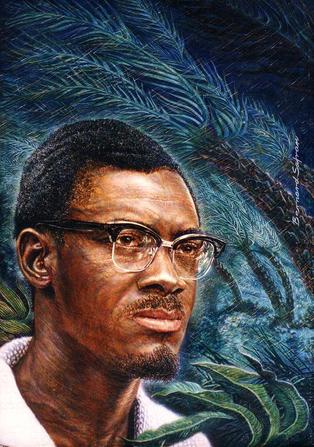African liberation movements
African liberation movements arose from a growing nationalism among previously divided African communities, the unfulfilled promise of self-determination following the end of World War II and the weakened economic and political capacities of Western Europe.
Our collection contains a wide range of materials representing liberation movements from Zimbabwe, South Africa, Namibia, Mozambique, Angola, Guinea-Bissau, Eritrea, and the Congo (DRC). Our collection also features containing Human Rights Reports from South Africa, IKWEZI, a revolutionary Azanian journal, and a sub-collection containing general resources about the continent. This collection includes audio and paper materials.
Strengths of the collection include materials on the role of women in African liberation struggles and national reconstruction, an interesting assortment of periodicals from Southern Africa, speeches and interviews with revolutionary leaders from across the continent, audio from solidarity events in the United States, and a set of human rights reports compiled during the transition from Apartheid to democracy in South Africa.
Our collection contains a wide range of materials representing liberation movements from Zimbabwe, South Africa, Namibia, Mozambique, Angola, Guinea-Bissau, Eritrea, and the Congo (DRC). Our collection also features containing Human Rights Reports from South Africa, IKWEZI, a revolutionary Azanian journal, and a sub-collection containing general resources about the continent. This collection includes audio and paper materials.
Strengths of the collection include materials on the role of women in African liberation struggles and national reconstruction, an interesting assortment of periodicals from Southern Africa, speeches and interviews with revolutionary leaders from across the continent, audio from solidarity events in the United States, and a set of human rights reports compiled during the transition from Apartheid to democracy in South Africa.
Subcollections
-
Africa- General Resources
This collection contains general resources about various themes related to the African continent. The collection draws from many types of materials (periodicals, books, pamphlets) and many different countries (Kenya, Guinea, Tanzania). -
Angola, Guinea-Bissau and Mozambique
This collection contains materials from the liberation struggles in former Portuguese colonies. Guinea Bissau gained independence in 1973 and Mozambique and Angola achieved independence in 1975. -
Anti-Apartheid Solidarity
This collection contains materials from Bay Area anti-apartheid movements of the 1980s originating from various sources, primarily Bay Area-based South African solidarity groups. -
Eritrea
Eritrea is located in the Horn of Africa. It gained its independence from Ethiopia in 1991 after a 30 year struggle for independence. -
IKWEZI
IKWEZI is a revolutionary Azanian Journal based on Marxism-Leninism-Mao Tsetung Thought. -
South Africa
This collection contains a variety of materials which focus on the anti-apartheid movement both within and outside of South Africa. -
South Africa: Human Rights Reports
The Human Rights Commission published weekly, monthly and annual reports. In addition, occasional in-depth special reports were published on important human rights issues. -
SWAPO- Namibia
SWAPO (Southwest Africa Peoples Organization) was formed in 1960 to fight for liberation in present day Namibia. Namibia gained independence from South Africa in 1990. -
Zaire-DRC
This collection contains materials from the Congolese struggle against neocolonialism and the rule of General Mobuto Sese Seko. -
Zimbabwe
This collection contains information about the liberation struggle in Zimbabwe, mainly focused on the struggle against Rhodesia and white settler rule.
Documents
1988 or 1989: Alice Walker facilitates a discussion between Paris Williams, Pearl Alice Marsh, Joyce Carrol Thomas, and Angela Davis about their thoughts on the accusation that Winnie Mandela’s bodyguards beat a South African boy. They discuss the media, racism, and sexism (sexism within the anti Apartheid movement as well as among Apartheid supporters). The tape starts and ends in the middle of a sentence.
Call Number: AFR 042AFormat: Cass AProducers: WBAIProgram: WBAI Special Program: Southern Africa - Africa at 40Collection: African liberation movements
1997 “Africa at 40” event celebrating 40 years of African independence. Mozambique President Chisano speaks about the African goals of unity of purpose, perseverance, awareness of identity, and becoming masters of own destiny. He acknowledges the continued oppression and marginalization, but talks about how African organizations are developing towards justice through new solutions. A member of the Pan Africanist Movement speaks about Kwame Nkrumah, leader of Ghana, and his vision of a united Africa.
The commander of medical care in Mozambique's refugee camps explains the problems of displaced refugees. Because of the heightened political turmoil, refugee camps in surrounding areas such as Rhodesia, Zimbabwe are being overpopulated. The commander explains that Mozambique's numbers in camps are rapidly increasing due to displaced people joining their camps. Population is passing 150,000 and people in crowded camps make medical care difficult. Threats of an epidemic such as typhoid can create a massive danger and vaccines are not being provided efficiently. Along with this current struggle, the commander explains the past injustices the Rhodesian army was doing to innocent refugees. Injustices like US supplied napalm, infecting drinking water and just providing the vaccination to white Africans, killing 700 in one camp, and poisoning crops.
Date: 6/13/1993Call Number: KP 225AFormat: Cass AProducers: Kevin, Les (?)Collection: African liberation movements
Slide show given by two men who have returning from work in the education department in post-war Eritrea. They discuss Eritrea's political history, Italy's colonization until WWII, the influence of the US and the USSR, and modern post-independence (1993) reform. Presenters discuss the complexities of the country's transition to independence through healthcare, education, and Eritrea's referendum to women and their struggle for independence within the patriarchal society.
Call Number: KP 292AFormat: Cass AProducers: Lincoln BergmanCollection: African liberation movements
Event with representatives of the Polisario Liberation Front of the Western Sahara/Morocco. Man and woman both speak, answering questions, probably late 1970s.
Begins with African people singing about Namibia. A representative of SWAPO (South West African People’s Organization) is interviewed by a couple of American students who are trying to help SWAPO. The SWAPO representative stresses the need for basic materials for schools in Namibia, such as books, chairs, scholarships, and uniforms.
Jose Uirab talking about the state of the Namibian people’s struggle for liberation from South Africa as of 1983. Discussed is the political and military struggle within Namibia, the role of U.S. Imperialism and Israel by aiding South Africa, the reaction to the liberation activity from the white population of South Africa, and other issues related to African Liberation struggles.
Radio News Program on the independence of Angola.
About the newly won independence of Angola (11/11/1975), ending violence between the Angolan people and their Portuguese colonizers. The MPLA (Popular Movement for the Liberation of Angola) is recognized for its strong Leadership of the struggle for independence.
Augustino Neto, leader of the FNLA (National Front for the LIberation of Angola) and UNITA (National Union for the Total Independence of Angola - led by Jonas Savimbi). He speaks about the cooperation he saw between the different African countries, and celebrates Angolan independence.
Also discussed are the problems in Rwanda between the different racial groups and the negotiations among colonizers and the people of Rwanda.
Also various people speak about Vietnam, Chile, and world events.
A speech by Malzoni Guta on ZANU (Zimbabwe African National Union) Zimbabwean language (possibly Shona or Ndebele languages).
A representative from the New York Material Aid Campaign for ZANU interviews Joyce Kangai, Publicity Secretary of the ZANU Women’s League. Kangai talks about how the Zimbabwean elections are being discredited and attacked by outside, imperialist forces such as Britain, Ian Smith of Rhodesia, Rhodesian armed forces, and South Africa. She states that these armed forces are all harrassing ZANU, attempting to forcibly keep the organization from the polls, and trying to eliminate democratic elections by claiming ZANU violated the ceasefire and by attacking ZANU leaders and supporters & their families, and homes. She also speaks about the increased participation of ZANU women in the struggle against the oppressors, the conditions of life for women under the whites and the goals and needs of the women of ZANU.

